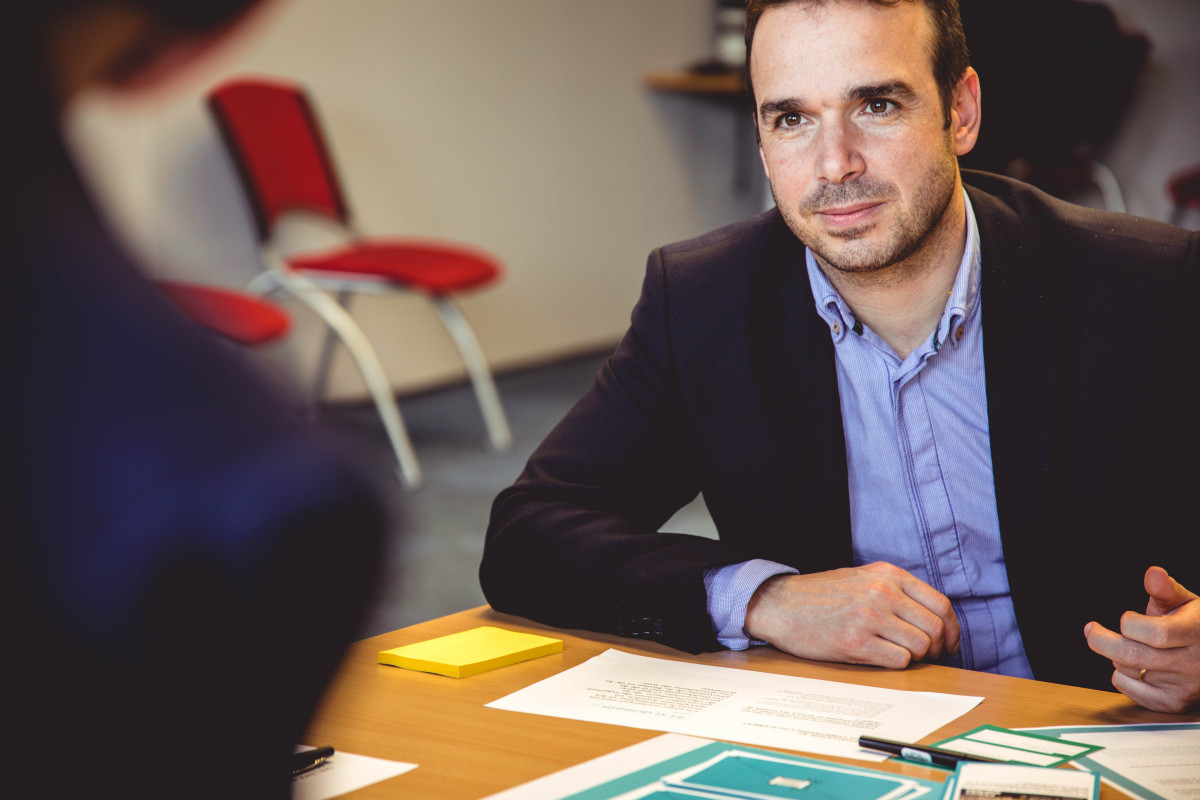
Written by Dieter
4 min reading time
The interview, also for the candidate an experience
Every day I have contact with HR directors, managers, assistants or recruiters. When I take a look at how they interview in practice, I notice some diversity. Too often I still see HR managers wrapping themselves up in a position of power like 10 years ago and bombarding candidates with a lot of questions. "They will have to make an effort if they want to work here"...
However, things can also be different, because as a company you are looking for the ideal candidate who matches the position and fits in your company. At the same time, as a candidate, you are looking for the position that matches your ambitions, and for the company that matches your values.
The secret to a good interview? That's about making this exercise together. Let's check this together. Let's sit next to each other instead of facing each other, and see if working together would be beneficial to both parties.
Add some structure to that and you have an interview that will be appreciated. It is advisable to split the interview into 4 parts: the preparation, the introduction, the most important questions and the conclusion.
1. The preparation
It starts with the first contact. Call the candidate enthusiastically to invite them for an interview. Let the candidate feel that you feel like it.
Think about how you will receive the candidate at your company. Will the candidate be welcomed by a grumpy colleague at the reception desk and will he then have to wait for half an hour on a dusty couch? Or does the candidate immediately get "the desire to work" after the first step inside?
2. The introduction
A good interview starts by making the candidate feel comfortable and setting out a clear framework for the course of the interview. In this way you will see the most sincere answers & true personality of your candidate.
Do you want to measure your candidate's stress resistance? Then do this in a different way, separate from the interview.
It is advisable to first explain the vision and values of the company, as well as your personal background before you let your candidate speak.
Sketch clearly what you offer and what you expect. The better you can show what your employer brand looks like, the easier it will be for your candidate to make the exercise.
"If 100 people apply for a job and 1 person gets to work for you, then 99 people will be left with a certain feeling about your company. Make sure this is a good feeling." cfr. Dieter D'hondt
3. The most important questions
Here you have the space to get to know your candidate by means of open questions. Find out what the candidate really thinks is important in his search for the "ideal employer". What is your candidate's motivation?
The intention here is to listen as well as possible and to deepen enough to get to the essence.
4. The conclusion
Give your candidate enough room to ask questions. It should not only be clear to you, but especially to the candidate. Ask for feedback and dare to ask what your candidate thought of it. Can your candidate identify with your brand and is it already a "match" for him/her? Important to know before you continue in the flow.
Finally, explain the next steps of the recruitment process and the timing.
Improve your candidate experience with our recruitment tool. Work with automatic email templates, interview invitations, digital interviews, scorecards and much more. All in one place and time-saving. Request your free trial today. Completely free and without obligation!

